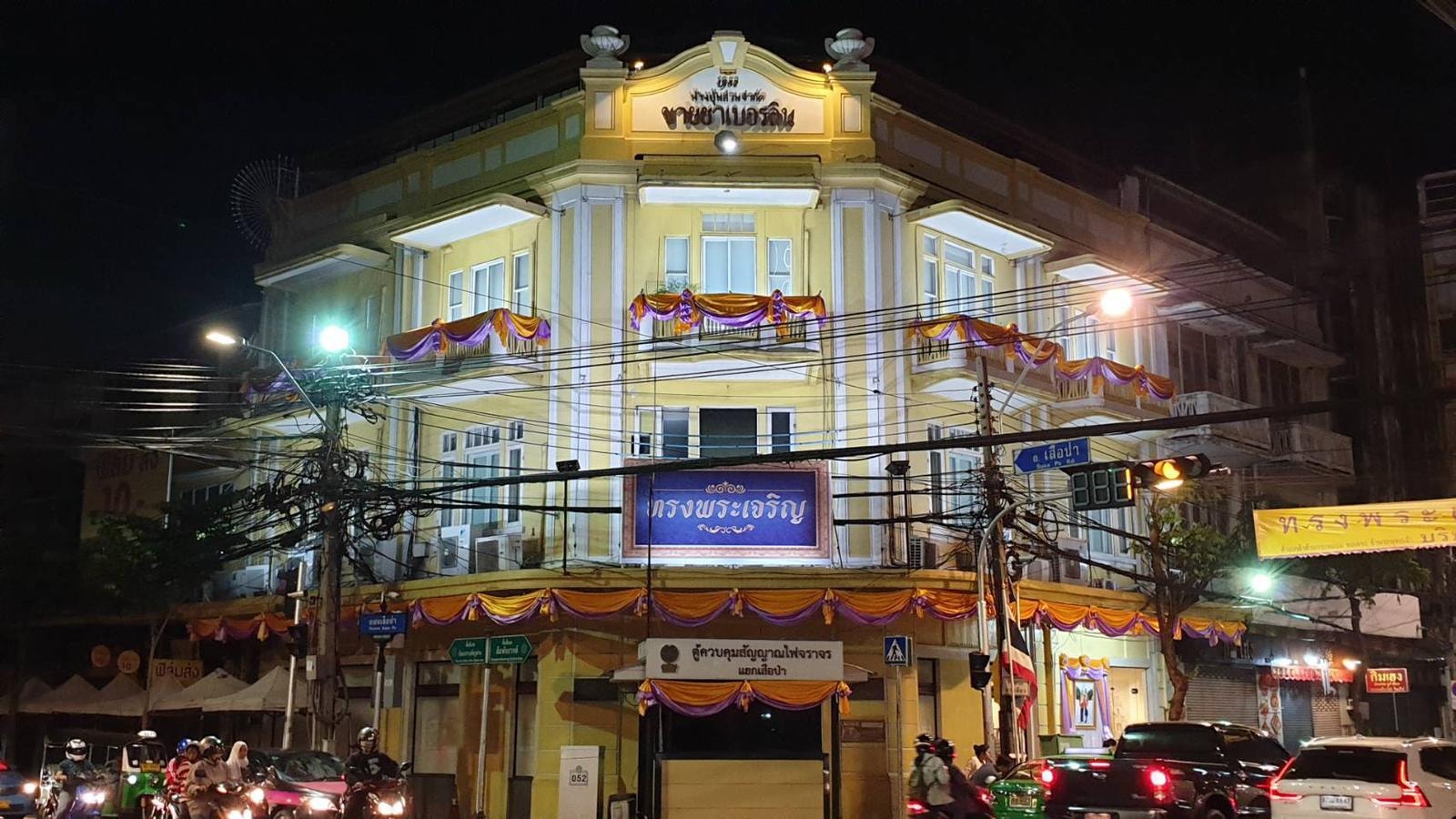Berlin Pharmaceutical Museum
The Berlin Pharmaceutical Museum, situated on Charoen Krung Road in Bangkok's historic Chinatown, chronicles the fascinating evolution of Western medicine in Thailand from the 17th-century Ayutthaya period to modern times. Housed in a century-old European-style yellow building that once served as th...
About the Museum
Established
2016
Affiliated Institution
Berlin Pharmaceutical Industry Co., Ltd.
Collection Size
Small but focused collection
Exhibit Focus
Visiting Information
Opening Hours
Daily except Tuesday, 9:00 AM-5:00 PM
Admission Fee
50 THB (₿20 redeemable for drinks/medicine)
Accessibility
Ground floor access; museum café attached
Quick Facts
Photos

Google Photos
Reviews
Reviews not available via API
While this location may have reviews on Google Maps, they're not accessible through our current API integration.
View reviews on Google MapsVisiting Information
Opening Hours
Daily except Tuesday, 9:00 AM-5:00 PM
Admission Fee
50 THB (₿20 redeemable for drinks/medicine)
Accessibility
Ground floor access; museum café attached
Quick Facts
Contact Information
Follow Us
Location
Loading map...
Getting There & Nearby
Transportation
Located at the corner of Sua Pa Road and Charoen Krung Road intersection, accessible by public transportation to Chinatown area.
Nearby Attractions
- •Sampheng Market
- •Wat Mangkon Kamalawat (Wat Leng Noei Yi)
- •Sala Chalermkrung Royal Theatre
Browse Museums by City
Other Museums in Bangkok

Chulalongkorn University Museum of Natural Medicine
The Chulalongkorn University Museum of Natural Medicine, housed on the third floor of the Osothsala Building within the Faculty of Pharmaceutical Sciences, serves as a remarkable repository documenting the evolution of pharmacy and traditional medicine from ancient times to the present. Opened on March 26, 2001, by Her Royal Highness Princess Maha Chakri Sirindhorn, this specialized museum was established to collect and conserve examples of Thai and foreign medicinal herbs, pharmaceutical instruments, and diverse pharmaceutical knowledge. The museum showcases the rich history of pharmacy through an impressive collection that includes the evolution of tools for making Thai medicine, authoritative batons and red sashes of royal doctors, traditional medicine grinders, and modern machines for making medicinal tablets and capsules. As part of a faculty established in 1913, the museum represents over a century of pharmaceutical education and serves as both an academic reference center for students and a cultural bridge connecting traditional Thai healing practices with modern pharmaceutical science. The institution maintains international cooperation through academic exchanges with museums worldwide, including its sister institute at the Institute of Oriental Medicine Research at Toyama Medical and Pharmaceutical University in Japan. Located within one of Thailand's most prestigious universities, the museum offers visitors a unique educational experience exploring the intersection of traditional herbal medicine and contemporary pharmaceutical innovation.
Museum of Thai Pharmacy
Museum established to publicize traditional Thai medicine from past to present for later generations to learn and treasure.

Siriraj Medical Museum
The Siriraj Medical Museum, aptly nicknamed the "Museum of Death," represents Thailand's premier medical educational institution, established within the grounds of Siriraj Hospital, the country's first public hospital founded by King Rama V in 1886 and home to Thailand's oldest medical school (established 1890). This comprehensive medical museum complex comprises seven distinct museums including the Ellis Pathological Museum (founded by American pathologist Dr. Aller G. Ellis in 1921), the Congdon Anatomical Museum, the Songkran Niyomsan Forensic Medicine Museum, the Parasitological Museum, the Sood Sangvichien Prehistoric Museum Laboratory, the Touch Museum in Honor of Queen Mother Sirikit, and the Siriraj Bimuksthan Museum, together housing over 60,000 specimens and artifacts that chronicle the evolution of medical and pharmaceutical sciences in Thailand from prehistoric times to the present. The museum's pharmaceutical and medical history components include the Ouay Ketusingh Museum of History of Thai Medicine, which showcases traditional Thai pharmaceutical practices, herbal medicine displays, historical apothecary equipment, and the evolution from traditional healing methods including village midwifery practices to modern medical science, alongside exhibits demonstrating the miraculous properties of Thai medicinal herbs and the instruments used in traditional Thai medicine shops. Notable figures associated with the institution include Professor Dr. Ouay Ketusingh, who established the history of Thai medicine collection in 1979 and headed the Departments of Physiology and Pharmacology, while the museum serves as both an active educational resource for medical students and a unique cultural attraction that preserves Thailand's medical heritage through authentic reconstructions of traditional pharmacies and comprehensive displays of pharmaceutical development. The museum's architectural setting within the historic Siriraj Hospital complex, particularly the renovated vintage building housing the Siriraj Bimuksthan Museum (formerly Bangkok Noi train station), provides visitors with an immersive experience that bridges Thailand's medical past with cutting-edge contemporary healthcare practices, making it an invaluable resource for understanding the intersection of traditional Thai medicine, modern pharmaceutical science, and the cultural context of healing practices in Southeast Asia.
Frequently Asked Questions
Find answers to common questions